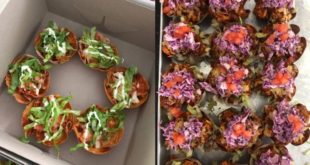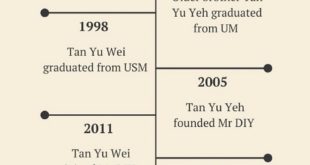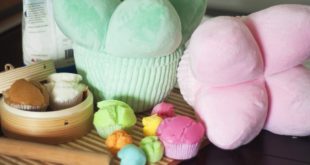Established in 1938, homegrown barbecued meat (bak kwa) brand Lim Chee Guan was founded by Lim Kay Eng.
In the 1920s, he left his family in Xiamen and travelled to Singapore alone by boat. Here, he took on odd jobs such as a plantation worker and coffee assistant.
Back home, his mother often made bak kwa during the war-stricken days as the meat can be preserved for a number of days. So when he missed his mother, he would make bak kwa for himself.
When he saved up enough money, he opened his very first stall — a pushcart — at Chin Chiew Street, which was otherwise known as “Tou Fu Kai” then.

Although business was brisk, the area was notorious for gang clashes. Opposing Cantonese and Hokkien gangs often had a brawl right by the stall, so Kay Eng decided to shift his stall to a shophouse along New Bridge Road in 1956 to avoid getting caught in the crosshairs.
He went on to open a second outlet at Chinatown’s People’s Park Complex in the 1970s.
When Kay Eng settled down and built a family for himself, his whole family resided on the second floor just above their shop. Business and family became closely intertwined to him.

In 1988, Kay Eng handed over the reins of his business to his son Rod Lim. Over the years, Rod’s two sons — Jerre Lim, 45 and Benny Lim, 42 — joined the family business.
Continuing Their Grandfather’s Legacy
When asked why they decided to take over the family business, their answer was simple: they have lived all their lives in the shop.
“It was our playground, where we studied and where we worked. Customers loved Jerre and I — two cute, round boys running around, selling stuff and handling money,” said Benny.
“All the time spent around the business also meant that joining it wasn’t much of a choice for us, though our father never pressured us into it.”

Both of them are university graduates, and had the opportunity to help grow the business since their childhood days. Under the guidance of their parents and grandparents, they gradually learnt the ins and outs of the business.
“When the time came, we naturally felt a strong need to play a bigger role in the business to preserve the fruits of our grandfather’s labour,” added Benny.
However, when the two brothers formally joined the business, they had a lot of disagreements within the family over how to run and modernise it without sacrificing the value and tradition of Lim Chee Guan.
Since each family member is in charge of different departments, they all have different viewpoints on how things should be done.
But at the end of the day, they realised that everyone wants the best for the business so they came to a “happy compromise.”
As long as we work (together) as a family, everything can be solved.
We agreed that when we make plans to implement any new technology, we must ensure that it does not alter the way our bak kwa is made or the quality and taste of our product.
– Benny Lim, third-generation owner of Lim Chee Guan

While their bak kwa production process remains largely the same, they now integrate the use of machines to help cut the large slabs of pork into smaller pieces and to transport the meat from one production station to another.
This helps to maximise the efficiency of the production process, while maintaining the integrity of the taste and texture of its bak kwas.
Sales Dropped More Than 70% Last Year
Over the years, Lim Chee Guan has moved from its shophouse to a factory in Woodlands, and now to Pandan Loop, so as to accommodate more staff to meet increased production demand.
The COVID-19 pandemic however, has badly impacted the business.
“Our sales have dropped more than 70 per cent in 2020,” said Jerre.
Now that Chinese New year is around the corner, sales have been picking up again. In fact, snaking long queues are a common sight at Lim Chee Guan’s outlets during this festive period.

To put things in perspective, the typical waiting is around six to eight hours, and the queue can run up to 300 to 500 metres from the shop, shared the brothers.
Due to COVID-19 restrictions, Lim Chee Guan does not allow walk-in purchases for all BBQ bak kwa products in all outlets until 9 February 2021.

It has also opened up online pre-orders to avoid long queues forming at their outlets. Due to “overwhelming response”, the site was down only after two hours of launch.
Their Priority Is To Scale The S’pore Business
From a humble pushcart, Lim Chee Guan has grown to become a renowned bak kwa brand in Singapore with four outlets in Singapore.
Their newer outlets include ION Orchard and Jewel Changi Airport, as they wanted to tap on its strategic locations.
“It will be easy for our customers (and tourists) to better locate us,” explained Jerre.

He added that having an outlet at the airport will make it easier for tourists to make their purchases so they can bring it back to their home country.
This is a subtle approach of bringing their brand overseas, and it’s interesting to note that Lim Chee Guan does not have outlets beyond Singapore.
Product quality is one of our top priorities. It’s not easy for anyone to be able to barbecue a perfect piece of bak kwa — some of our staff actually took years to master it.
Should we go overseas, manpower might be an issue in producing the same quality of products. Hence, we wish to concentrate on Singapore first, given that Singapore is our home.
– Jerre Lim, third-generation owner of Lim Chee Guan
He added that they want to focus on improving their products and operation before spreading their wings abroad.

When asked what’s Lim Chee Guan’s recipe to success for lasting in this competitive F&B industry for over 80 years now, Benny simply said that it boils down to “hard work and dedication”.
“Even though it sounds cliché, there really isn’t any secret to it, or if there is, we’d love to know about it too!”
“But in all honesty, we are grateful that bak kwa is a product that has come a long way — from just a method of simple meat preservation and food sustenance during the winter months, to what it is today. We were brought up in a household that focused on family, tradition and quality so these are also the three main values that drive us forward.”
As a firm believer in old-fashioned values of honesty and grit, their father still oversees some of the business processes and hence still plays a very active role in the business.
They stressed that there is no shortcut to success. This is why they are bent on growing the brand organically, even if it takes time. In their case, it has taken them over 80 years.
Featured Image Credit: Ong Yi Chao / Lim Chee Guan



